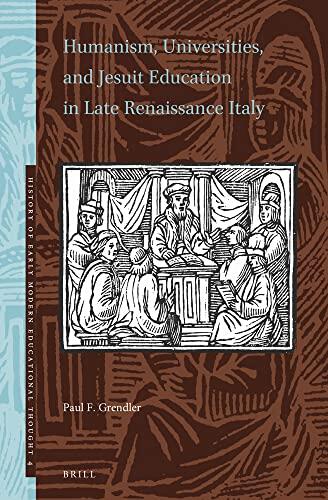
Humanism, Universities, and Jesuit Education in Late Renaissance Italy
بواسطة
Paul F. Grendler
لا توجد تقييمات بعد
تنسيق
غلاف صلب
صفحات
532
لغة
الهولندية، الفلمنكية
منشور
Jan 1, 2022
الناشر
Brill Academic Pub
رقم ISBN-10
9004510273
رقم ISBN-13
9789004510272
الوصف
In a nuanced exploration of late Renaissance Italy, the author delves into the complex interplay between humanism and education, particularly within Jesuit institutions. The examination unfolds against a backdrop of a society undergoing profound cultural shifts, where the revival of classical ideas significantly influenced educational practices.
The book highlights the pivotal role of universities in shaping intellectual thought and fostering a new generation of thinkers. Grendler emphasizes how these educational centers became battlegrounds for competing philosophies, with humanist principles often at odds with traditional doctrines. The author illustrates how Jesuit education adapted to these tensions, promoting rigorous academic standards while seeking to integrate religious values.
Throughout the narrative, readers encounter a rich tapestry of historical figures, pedagogical methods, and institutional transformations. Grendler’s work not only sheds light on Jesuit contributions to education but also invites reflection on the lasting impacts of these developments on modern educational theory.
The book highlights the pivotal role of universities in shaping intellectual thought and fostering a new generation of thinkers. Grendler emphasizes how these educational centers became battlegrounds for competing philosophies, with humanist principles often at odds with traditional doctrines. The author illustrates how Jesuit education adapted to these tensions, promoting rigorous academic standards while seeking to integrate religious values.
Throughout the narrative, readers encounter a rich tapestry of historical figures, pedagogical methods, and institutional transformations. Grendler’s work not only sheds light on Jesuit contributions to education but also invites reflection on the lasting impacts of these developments on modern educational theory.